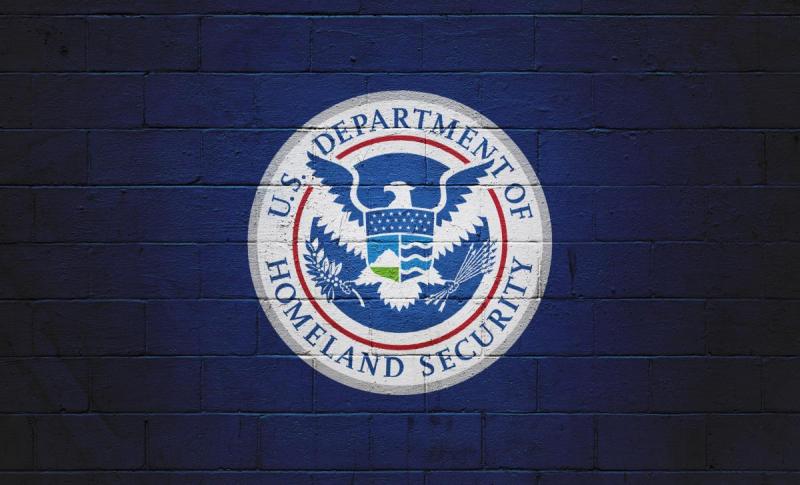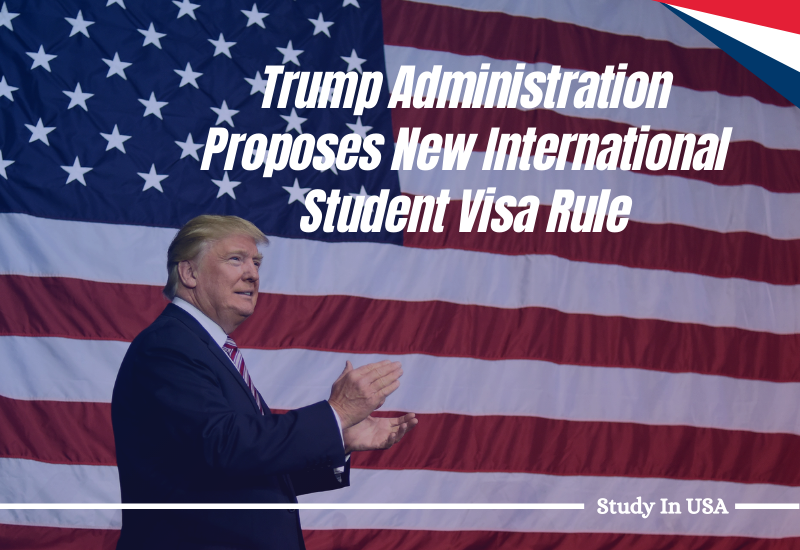A vast number of significant changes in policies and regulations take place under Trump Governance. While many of the decisions are met with pleasure by citizens, some prove to be quite risky. Recently, a new restriction by Trump is going to make education for international students in the U.S. a challenging situation.
Table of Contents
What Is the New Rule?
The new rule by the Trump administration proposes a restriction on segments of international students entering the U.S. for education. The limitation proposes to limit the length of their stay in the country, depending on their nationalities.
The new length of stay is either two years or four years after the issue of their visas.
The Department of Homeland Security (DHS), in a public statement, states that the new rule requires international students to stay in the U.S. for a certain period. The law is put into place “to encourage program compliance, reduce fraud, and enhance national security.” However, it does not apply only to international students. The rule also applies to any foreign media representative and exchange visitors as well.
Read More: Tips for US F1 Student Visa Interview
What Does the New Rule Imply for International Students?
Unfortunately, this new proposal is both shocking and devastating news for international students. Under this further restriction, visas of international students coming to the U.S. for their education would expire either after two years or four years after its issuing.
Until the new restriction, the visa rules and regulations would allow international students to stay in the U.S. as long as it took for them to complete their degree. This period could often extend to more than four years. As long as international students remain in school pursuing their education, they can stay in the U.S.
However, under the new restriction, this is no longer possible.
Of course, this spells disaster for many international students. It is important to remember that several significant educational degrees in the U.S. often take over four years to complete. This applies to almost all doctoral programs.
As long as their visas expire within four years, they will be unable to stay in the U.S. to complete their education and get their degrees. This puts students into a significant soup.
Read More: What are the Common Questions When Applying for Student Visa?

What Are the New Restrictions?
Certain countries are prone to higher visa overstay rates. Typically, the rate exceeds 10% for both students as well as exchange visitors. These countries are now under restriction, according to which their stays shall be limit to two years only. This move is being implemented to reduce all kinds of immigration violations, increase their monitoring, and incentivize their timely departures.
Additionally, international students hailing from Sudan, Iran, North Korea, and Syria will also be facing this two-year limit. Any country on the State Sponsors of Terrorism list will face this two-year restriction, irrespective of other factors.
Read More: Trump Is Killing OPT – International Students Work Visa
Why Is This Policy Necessary?
A lot of people argue that this policy is completely unnecessary and has devastating repercussions for international students. However, a report in The Wall Street Journal gives us an insight into what the Trump administration has in their minds when they put forward this policy change.
According to the Trump administration, under the status quo, students are technically able to prolong their stay in the U.S.- as long as they can prove with the necessary documents that they are continuing their education. As many already understand, several degrees take over four years to complete. By showing the essential documentation, students can unnecessarily prolong their stay in the country, which may pose certain national security risks.
This is the justification that we see, and it is understandable why international students and even citizens find it an unjustifiable excuse.
Read More: Visa or Mastercard: Which Is Better for International Students?

Why Are Students Enraged by This Reasoning?
Well, the U.S. department communication uses an example to elucidate the rationale behind their decision towards the policy change. They cite an example of a student in 1991 who uses his student visa to continue staying in the country to attend a dance school.
However, the report fails to cite any further examples of students using or misusing their student visas in similar ways to prolong their stay in the U.S. Moreover, the model they cite does not have any reference to any form of national security risk.
It is thus understandable why several individuals, including international students, find the rationale incomprehensible and reprehensive.
Read More: Trump Reduces Overstays By Changing Visa Rules for Foreign Students
Is There Any Way Out for International Students?
This new restriction and change in policy will naturally hit doctoral students the hardest. Typically, doctorate degrees take over four years to complete. However, under Trump’s new policy, they will have no choice but to leave in the middle of their education, which does not make much sense.
However, there is a way out for these students.
The students who wish to extend their stay in the U.S. for over a period of four years can either reapply for a new student visa or get an extension.
Ken Cuccinelli, who is the second-ranking official working at DHS, recently releases a statement where he states that “Amending the relevant regulations is critical in improving program oversight mechanisms, preventing foreign adversaries from exploiting the country’s educational environment; and properly enforcing and strengthening U.S. immigration laws.”

It is noteworthy that students who are born in certain countries or hold citizenship in them will face their visa expiration after two years only. These countries are:
- Afghanistan
- Benin
- Bhutan
- Burkina Faso
- Burundi
- Cameroon
- The Central African Republic
- Chad
- Congo (DRC)
- Congo (ROC)
- Côted’Ivoire
- Djibouti
- Equatorial Guinea
- Eritrea
- Ethiopia
- Gabon
- The Gambia
- Ghana
- Guinea
- Guinea-Bissau
- Guyana
- Haiti
- Iran
- Iraq
- Kenya
- Kosovo
- Kyrgyzstan
- Liberi
- Libya
- Malawi
- Mali
- Mauritania
- Moldova
- Mongolia
- Nepal
- Niger
- Nigeria
- North Korea
- Papua New Guinea
- The Philippines
- Rwanda, Samoa
- Senegal
- Sierra Leone
- Somalia
- South Sudan
- Sudan
- Syria
- Tajikistan
- Tanzania
- Togo
- Tonga
- Turkmenistan
- Tuvalu
- Uganda
- Uzbekistan
- Vietnam
- Yemen
- Zambia

However, the Trump administration may find it challenging to implement this policy unless he wins the second term in November. If so, then Trump may be able to implement the new restriction after January 2021 formally.









 Essay Tips- Pros and Cons Veneers
Essay Tips- Pros and Cons Veneers